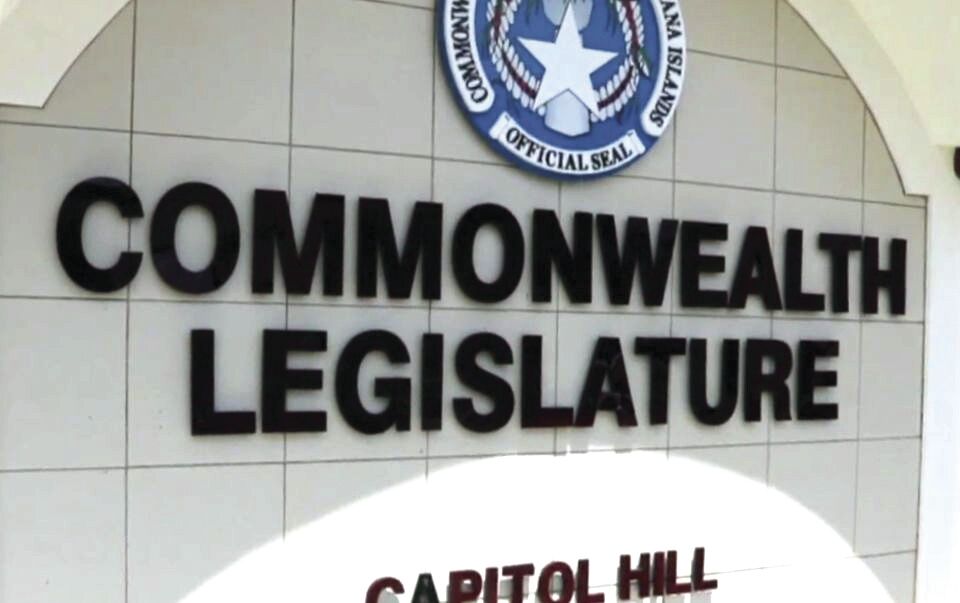
SENATOR Manny Gregory T. Castro on Monday introduced Senate Legislative Initiative 24-2, proposing to reduce the number of senators to six and the House of Representatives to seven.
“I recognize your bravery,” Senate President Dennis James Mendiola told Castro.
Also present at Monday’s Senate session were Senate Vice President Karl King-Nabors, Senate Floor Leader Donald M. Manglona, Sen. Jude U. Hofschneider, Sen. Frank Q. Cruz, Sen. Corina Magofna, and Sen. Celina Babauta. Sen. Ronnie Calvo was excused.
Aside from reducing the number of legislators, S.L.I. 24-2 also proposes that House members be elected at-large. It would likewise allow the Legislature to enact local laws concurrently with municipal council members.
In addition, S.L.I. 24-2 would authorize the lieutenant governor to cast a tie-breaking vote in the Senate on legislation.
The Senate currently has nine members, with each senatorial district (Saipan & Northern Islands, Tinian, and Rota) represented by three senators — two elected in general elections and the third in midterm elections. A senator serves a term of four years.
Under S.L.I. 24-2, each senatorial district would have two members only.
The House currently has 20 members: six representing Precinct 1 (Saipan); two representing Precinct 2 (Saipan); six representing Precinct 3 (Saipan); two representing Precinct 4 (Saipan); two representing Precinct 5 (Saipan); one representing Precinct 6 (Tinian); and one representing Precinct 7 (Rota). Each House member serves a two-year term.
Under S.L.I. 24-2, Saipan would elect five members to the House, while Rota and Tinian would each continue to elect one.
A legislative initiative is a proposal to amend the Constitution. It must be passed by an affirmative vote of three-fourths of the members of each house present and voting. A legislative initiative may not be vetoed by the governor but must be approved by voters.
In a media release, Castro said that with a population of just 47,329 people (based on the 2020 U.S. Census), the CNMI currently maintains a bicameral legislature of 29 members — a ratio that far exceeds that of neighboring jurisdictions like Guam, where 15 senators represent over 153,000 residents.
“We are overrepresented by every objective metric,” said Castro. “This is a structural inefficiency we can no longer afford. Our government must reflect our population and our financial reality.”
He said according to fiscal year 2025 estimates, each legislator currently costs taxpayers approximately $137,000 annually (salary plus office budget). A reduction from 29 to 13 members would directly save the Commonwealth an estimated $1.78 million annually, with indirect savings projected to be exponentially higher.
He said the current structure of the Legislature has also raised serious equity concerns. Saipan, home to over 90% of the Commonwealth’s population, is effectively underrepresented under the existing constitutional cap of 20 House members, he said.
• Rota (approx. 1,893 residents) has four legislators;
• Tinian (approx. 2,044 residents) has four legislators;
• Saipan (approx. 43,385 residents) has 21 legislators.
Castro said this disparity is further illustrated by the legislator-to-population ratios:
• Rota: 1 legislator per 473 residents
• Tinian: 1 per 511
• Saipan: 1 per 2,066
“Representation must reflect actual demographics — not just political tradition. By electing House members at-large and reducing overall numbers, we promote equality, streamline government, and strengthen accountability,” Castro said.
He added that the savings realized from his proposed right-sizing effort could be redirected to address the CNMI’s most urgent needs:
• Supporting the Retirement Fund
• Strengthening education and healthcare
• Advancing infrastructure and workforce development
• Stimulating small business recovery and economic growth
“Every dollar we save on legislative bloat is a dollar we can reinvest into our schools, hospitals, retirees, and economic resilience. This initiative is a long-overdue correction — not just to the Constitution, but to our priorities as a government.”
Let the people decide
As required by law, this constitutional amendment will be placed on the ballot for voter ratification at the next general or special election.
Castro said the legislative initiative has already garnered key bipartisan support and is advancing through the legislative process.
Vice Speaker Diego F. Camacho also issued a statement in support of S.L.I 24-2. He said, “The power now lies with the people. I trust they will see the facts, recognize the need for change, and help us build a more responsive and effective government for the next generation.”
He also said that the initiative is not about cutting corners — it’s about cutting excess. “We are currently operating a bloated, inefficient, and unnecessarily expensive system. It’s time to right size our government to match our population and fiscal reality.”
Castro said his legislative initiative is apolitical, driven by objective data, and focused on building a smarter, leaner, and more accountable government.
“We are not doing this to weaken representation — we are doing this to strengthen public trust. We believe the people of the CNMI are ready for this conversation, and we are ready to lead it,” he added.











